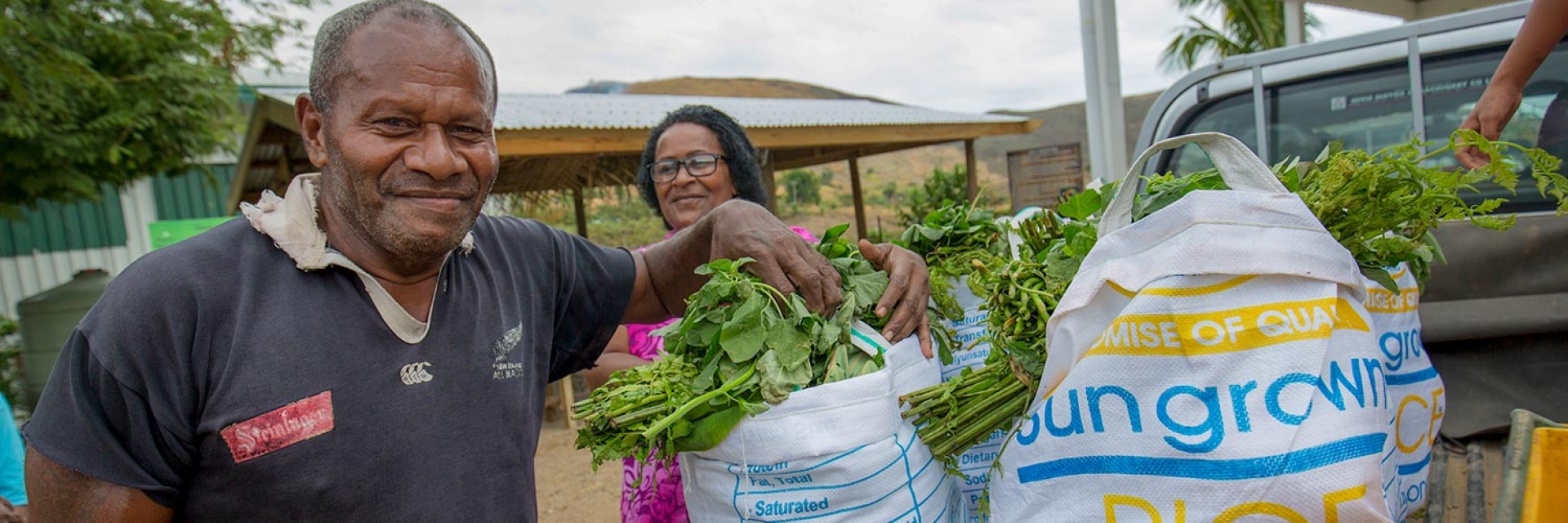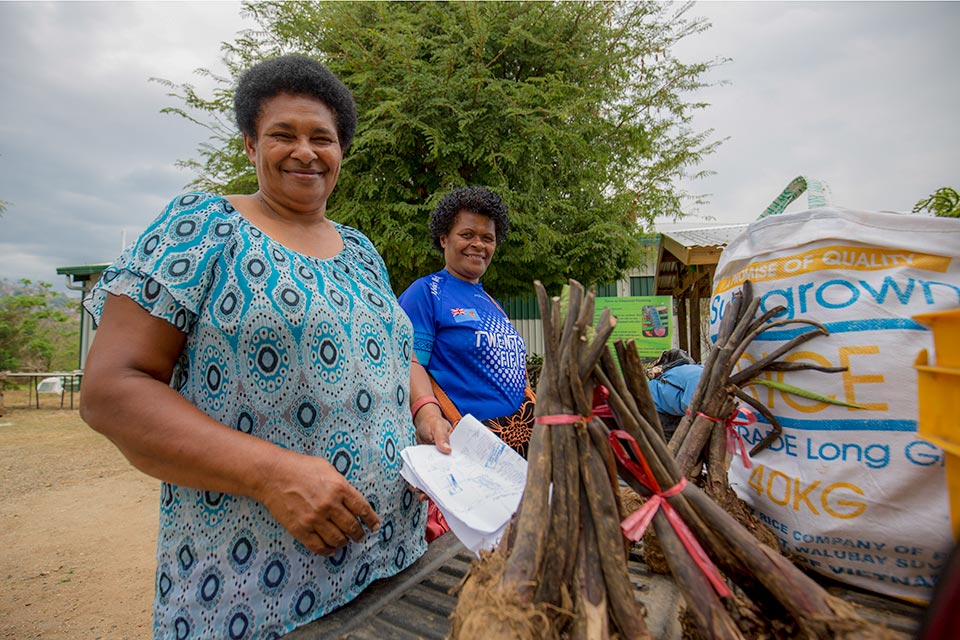
Even paradise can get swamped


“We were very disheartened,” says Gulnaz Bibi as she recounts the day Tropical Cyclone Keni hit the western side of the beautiful Fiji Island where she lives.
And well they could be. Keni, the stronger of two storms, followed 10 days after Tropical Cyclone Josie in early April, 2018.
“Our house was broken by the strong winds, but we were unable to leave because of the wind and rain,” Bibi recalls. “We were as prepared as we could be, but unfortunately all the houses in our community were affected by the flooding.”
Bibi has lived in Mataniqara Settlement in Ba for the last 20 years, an area that was hard- hit by the two cyclones.
Tropical cyclone Keni damaged houses, crops and livestock, leaving the populations with no source of food, and decimating their livelihoods.
“The food ration distributed by Oxfam helped us a lot and we’re happy that we were part of the communities assisted,” says the 38 year-old Bibi.
Following Keni, Oxfam, with funding support from the Canadian Humanitarian Assistance Fund (CHAF) and the Humanitarian Coalition, distributed organic produce to more than 1,000 people from nine communities located between Lautoka and Ba.
Each food basket containing fresh vegetables, root crops, and fish or chicken was delivered to 170 affected families on a regular basis over a period of three months.
This initiative ensured that only fresh nutritious food was provided to families who needed it the most, and that local organic producers also benefited in the process.
Bibi says that the people of Mataniqara are recovering. “We are grateful for the strong support and helping hands from Oxfam that saw us through a devastating period.”
When smaller-scale disasters happen around the world, the Humanitarian Coalition, through its member agencies, is ready to respond with life-saving and sustaining assistance. You can help us to be ready when the next emergency strikes. Learn how…